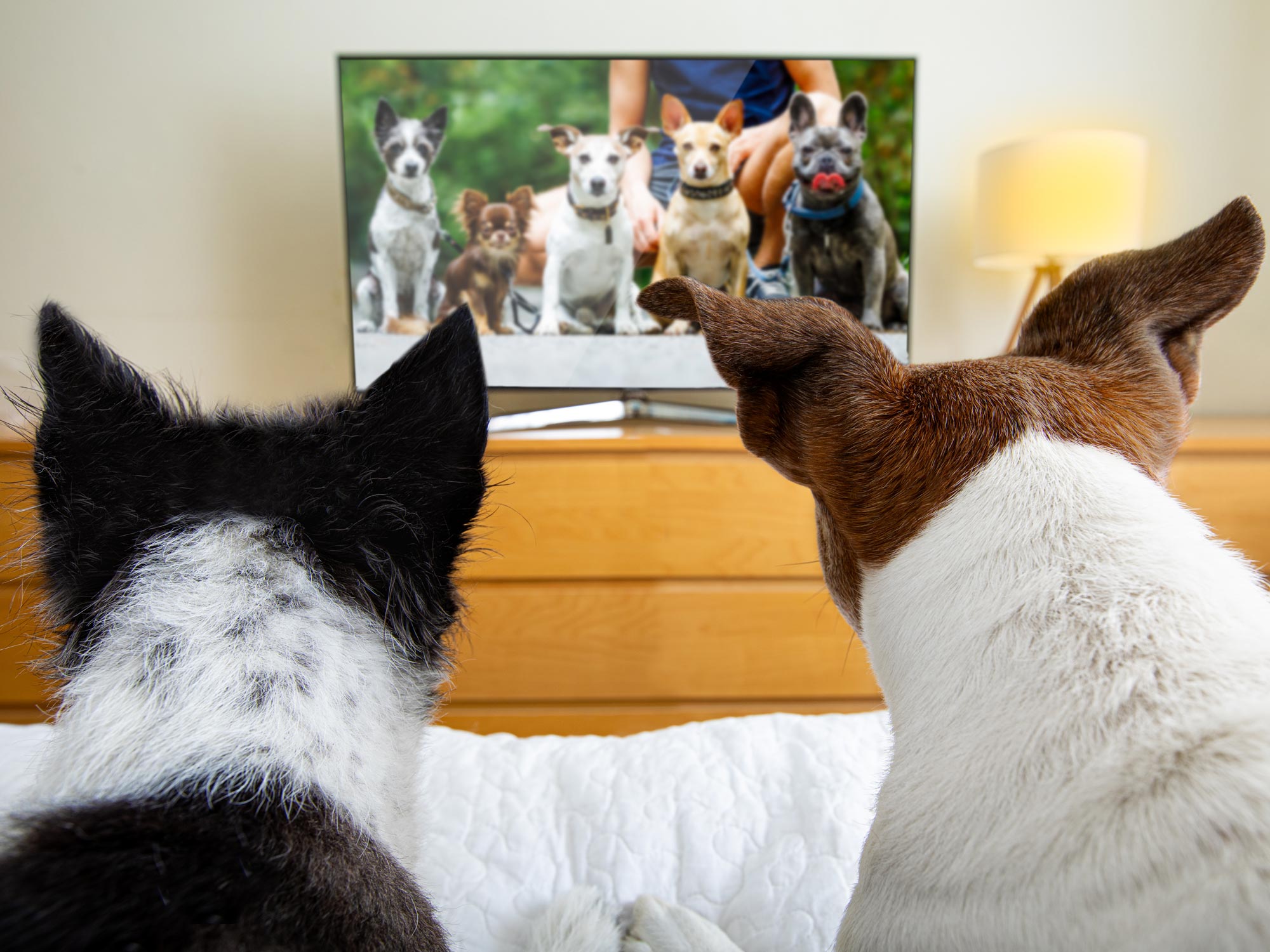Are TV Dog Trainers As Effective As They May Seem?
08/03/2023 - Blog
Do you enjoy watching TV dog trainers transforming lives with their no nonsense approach and clever techniques? The programs make for compelling viewing, but from a professional dog owners’ point of view, they can be quite frustrating. Here’s why I think that dog training telly programs have their limitations.
- TV shows are about entertainment - they don’t show the all-important repetitive exercises involved in training a dog.
- Most behavioural problems are far more complex that we see on TV. They’ve been simplified for entertainment value, we’re not shown the whole story.
- The show is edited to give the impression of instant results.
- There is no one size fits all solution to doggy behavioural problems - what works on telly might not work for your pet.
- TV does not provide the emotional support that pet parents need when trying to resolve their pet’s problems - it’s often a long and frustrating journey.
- Programs rarely put enough emphasis on the importance of vet checks. You cannot train a dog to ignore physical pain.
- Trying to copy TV trainers may not be a good idea. Great training techniques executed wrongly can make the problem worse.
- I would like to see more mention of how to find a GOOD dog trainer to help your pet. With tips on how to tell the difference between experienced trainers from well-meaning amateurs.

Enjoy The Entertainment But Educate Yourself On The Facts
TV dog trainers - and there are several of them - are at the behest of directors, editors and programmers. The people who make the programs are unlikely to be pet professionals, but they do know how to make us sit and stare at a screen for 30 minutes or so. It’s all about entertainment, drama, happy endings and telling a good story.
Months’ worth of training is condensed into half an hour of viewing. The reality of dog training is that it requires very simple exercises, repeated lots and lots of times. It’s the repetition and reward that grows neural pathways and cements a behaviour into the dog’s brain. Wouldn’t it be boring to spend 20 minutes watching little Milo practice his recalls or his loose lead walking? The process of dog training is not particularly entertaining, but the results are.
On TV, because of the time constraints, we never get to see the ups and downs of dog training. In most real life training stories the dog will go through a period of confusion at their human’s change in attitude or routine. The humans will sometimes forget to implement management tools - because dog training is about changing people’s habits too. Or there will be times when there doesn’t seem to be any progress at all despite everyone’s best efforts. Those times can be frustrating. It’s impossible to show all of that in 30 minutes which is why I feel TV dog training shows set unrealistic expectations of what can be achieved in a short time.
There Is No ‘One Size Fits All’ In Dog Training
Imagine for a moment that you have a new puppy and you are struggling to socialise them. Perhaps puppy seems easily startled by strange noises or is afraid of other dogs. Or maybe your little one is too enthusiastic and no matter what you try, they just cannot stay calm around people or pets. Socialisation is crucial, but it MUST be tailored to YOUR puppy and YOUR lifestyle.
As a dog trainer, the advice I give to each pet owner will be very different. Maybe I’ll feel that the pup is fine, but it’s actually the owner who needs a little more confidence about training their dog. Whatever the stumbling block, I can use my experience along with an objective approach to help that family to achieve their dog training goals.
TV dog trainers are, quite rightly, focusing on one family yet it’s easy to assume that the techniques used might work in every similar situation. It’s therefore tempting to try those techniques on your own pet, and then, if they don’t work, assume that your dog is a lost cause. That’s rarely true, there is almost always a solution, but it takes learning, experience and patience to discover and implement it.
Emotional Support For Dog Owners
One thing that TV can never do is offer individual emotional support. Now I’m not suggesting that dog owners are counsellors or potential best buddies. The relationship between a pet owner and their dog trainer should always be professional because too much involvement can cloud the waters. But it’s crucial that every pet owner has a trustworthy ‘life line’ when training is not going as expected. And also someone to celebrate those little victories with.
Dog training is never totally straightforward. If you were to draw a graph to represent results, it would (should) be an upward slope, but it won’t be a straight line. At times progress will plateau, it will sometimes even regress. When you are training a dog, you are effectively re-setting parts of their brain. The rate of change will vary according to many factors. Is the dog tired? hungry? Feeling a bit off-color? Bored? Distracted? Struggling to understand what you are asking of them? Humans all have days or periods in their life when things don’t run smoothly - so do dogs. Having the support of a dog trainer to remind you that this is normal can ease frustration and encourage you to carry on.
How To Find A GOOD Dog Trainer
Once or twice, I’ve seen some training techniques that made me shriek at the TV. I’m not going to name names or recount the scenario. And I do accept that every dog trainer brings something a bit different to the table. But, what I would like to see on TV dog training programs is encouragement for dog owners to seek help with raising their pets to be confident in all situations. That means puppy training, help with issues during adolescence (adolescent dogs can be a real handful) and also helping dogs to recover from traumas such as accidents, shocks or arguments.
Most importantly of all, I’d like TV programs to raise awareness that because the dog training industry is unregulated, not everyone trading as a dog trainer uses scientifically proven techniques. In my view, reward based dog training is crucial to the long term mental health of our pets and pain or fear should NEVER be used. Not in any circumstances.
If you are searching for a dog trainer or a canine behaviourist, take great care to check their credentials. Look for APDT membership as it ensures the trainers are knowledgeable, properly insured and use best practice at all times.
Visit the APDT website to find a dog trainer near you. https://www.APDT.uk.com/find-a-qualified-APDT-trainer
You Might Also Like
Should you say ‘no’ to your dog? https://www.ck9training.co.uk/blog-post/should-you-say-no-to-your-dog/
How do I stop my dog behaving badly? https://www.ck9training.co.uk/blog-post/how-do-i-stop-my-dog-behaving-badly/









